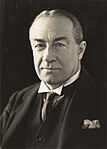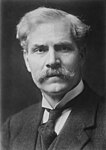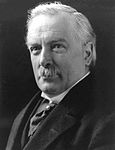
Back Všeobecné volby ve Spojeném království 1931 Czech Parlamentsvalget i Storbritannien 1931 Danish Britische Unterhauswahl 1931 German Elecciones generales del Reino Unido de 1931 Spanish Élections générales britanniques de 1931 French הבחירות הכלליות בבריטניה 1931 HE Elezioni generali nel Regno Unito del 1931 Italian 1931年イギリス総選挙 Japanese 1931년 영국 총선 Korean Parlamentsvalget i Storbritannia 1931 NB
| |||||||||||||||||||||||||||||||||||||||||||||||||||||||||||||||||||||||||||||||||||||||||||||||||||||
All 615 seats in the House of Commons 308 seats needed for a majority | |||||||||||||||||||||||||||||||||||||||||||||||||||||||||||||||||||||||||||||||||||||||||||||||||||||
|---|---|---|---|---|---|---|---|---|---|---|---|---|---|---|---|---|---|---|---|---|---|---|---|---|---|---|---|---|---|---|---|---|---|---|---|---|---|---|---|---|---|---|---|---|---|---|---|---|---|---|---|---|---|---|---|---|---|---|---|---|---|---|---|---|---|---|---|---|---|---|---|---|---|---|---|---|---|---|---|---|---|---|---|---|---|---|---|---|---|---|---|---|---|---|---|---|---|---|---|---|---|
| Turnout | 76.4%, | ||||||||||||||||||||||||||||||||||||||||||||||||||||||||||||||||||||||||||||||||||||||||||||||||||||
| |||||||||||||||||||||||||||||||||||||||||||||||||||||||||||||||||||||||||||||||||||||||||||||||||||||
 Colours denote the winning party—as shown in § Results | |||||||||||||||||||||||||||||||||||||||||||||||||||||||||||||||||||||||||||||||||||||||||||||||||||||
 Composition of the House of Commons after the 1931 General Election | |||||||||||||||||||||||||||||||||||||||||||||||||||||||||||||||||||||||||||||||||||||||||||||||||||||
| |||||||||||||||||||||||||||||||||||||||||||||||||||||||||||||||||||||||||||||||||||||||||||||||||||||
The 1931 United Kingdom general election was held on Tuesday 27 October 1931 and saw a landslide election victory for the National Government which had been formed two months previously after the collapse of the second Labour government.[1] Collectively, the parties forming the National Government won 67% of the votes and 554 seats out of 615. Although the bulk of the National Government's support came from the Conservative Party and the Conservatives won 470 seats, National Labour leader Ramsay MacDonald remained as Prime Minister. The Labour Party suffered its greatest defeat, losing four out of every five seats compared with the previous election, including the seat of its leader Arthur Henderson. Ivor Bulmer-Thomas said the results "were the most astonishing in the history of the British party system".[2] It is the most recent election in which one party (the Conservatives) received an absolute majority of the votes cast, and the last UK general election not to take place on a Thursday. It would be the last election until 1997 in which a party won over 400 seats in the House of Commons.
Cite error: There are <ref group=note> tags on this page, but the references will not show without a {{reflist|group=note}} template (see the help page).
© MMXXIII Rich X Search. We shall prevail. All rights reserved. Rich X Search





